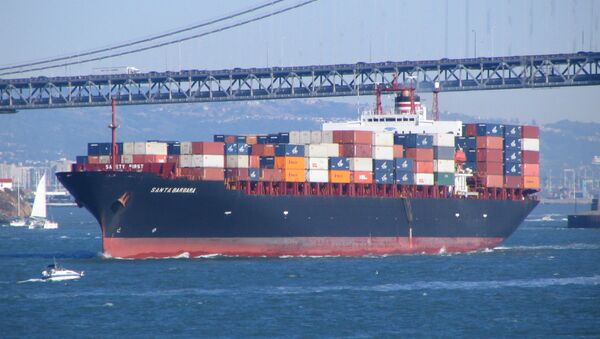A nine-month stalemate between West Coast ports and dockworkers unions ended in February, and with that end to labor shutdowns, March saw a rapid expansion of imports. This backlog has created the largest US trade deficit in 6½ years.
According to the Commerce Department, the deficit reached a whopping $51.4 billion in March, the largest it’s been since October 2008. That’s a climb of 43.1%, which sets an even more dramatic record, as the largest increase since 1996.
That’s a significantly larger number than had been predicted by the White House, which had prepared for a $45.2 billion deficit, and that kind of drastic miscalculation is bad for the US economy.
"It looks like we are going to have negative GDP for the first quarter, just based on trade, but we expect a robust rebound in the second quarter," Jacob Oubina, senior US economist at RBC Capital Markets told Reuters.
Others aren’t so optimistic. A negative quarter could be the first signs of a floundering US economy, which has only recently recovered from the 2008 recession.
"The truly worrying thing would be if this continued into this quarter," Tim Worstall writes for Forbes. "If it does then America will be, in the technical manner that we decide upon such things, back in recession."
Part of that worry comes from the strength of the US dollar, which could become a burden on the global market.
"More worrisome is the possibility that the strong dollar is making American exports too expensive abroad, while encouraging imports by making foreign goods cheaper in the US," Peter Coy writes for Bloomberg. "That’s more than a blip because the longer the dollar stays strong, the more people will switch away from costly American-made goods and services."
On top of that, the trade deficit in manufacturing rose to $72 billion, a 1.04% increase from the previous record set last October.
"This is just the latest reminder that claims of a renaissance in US manufacturing just don’t pass the laugh test," Alan Tonelson wrote for the RealityChek finance blog.
The report comes as more bad news for Washington, as a number of economists have expressed concern that the US economy could soon be back on the decline, in part due to wasteful spending and foreign debt.
"There will be serious, deadly consequences to our irresponsibility, which emanated from both party’s lack of financial discipline," Todd Wood, author of the book Currency, told Sputnik on Sunday. "At some point the Federal Reserve will lose control of the bond market. Our fiat currency will only be worth the paper it is printed on. The top-heavy, Western, socialist, welfare-state societies will collapse under their own weight."





